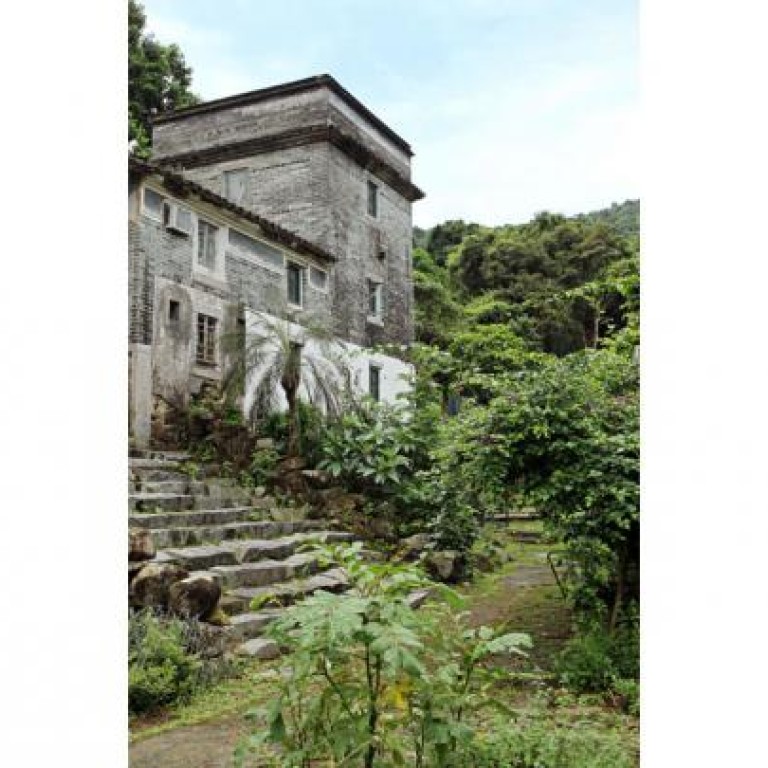
Sai Kung village, Pak Sha O, under threat from developer
Conservationists raise fears over other unzoned enclaves in country parks as company buys up land in Pak Sha O and has it cleared for farming
A Sai Kung village rich in ecological and heritage values is under threat from a developer who has bought up land faster than the government can freeze and zone its use, conservationists warn.
In the past month, about 3 hectares of land were cleared and drained for farming in Pak Sha O, an enclave of carefully preserved century-old farm homes set amid a wealth of greenery and wildlife in Sai Kung West Country Park.
The affected area is one of 77 private enclaves within country parks in the New Territories and on Lantau. The government listed the 77 sites in 2010 after the exposed the misuse of such land in Tai Long Wan.
A total of 54 of the 77 enclaves were unzoned in 2010. The government promised to protect the others, drafting them into statutory plans, but 35 - including Pak Sha O - remain unprotected.
Now conservationists are raising the alarm because the developer in Pak Sha O has filled in ecologically valuable wetlands, which may be only the start of more development on unzoned land in Sai Kung's country parks.
"Excavation machines have started digging up dirt, draining the wetlands and destroying plants," said James Wong Ming, of the Friends of Sai Kung. "We speculate [the developer] is using a 'first destroy, then develop' policy here to do what they want."
At least 40 per cent of the saleable land in and around Pak Sha O village has been bought by one developer - Xinhua Bookstore Xiang Jian Group, owned by Lau Ming-shum, who also heads Treasure Spot Holdings.
"Pak Sha O has a diverse ecological profile and one of the best-conserved villages in Hong Kong, and is now under huge development pressure," said Wong. "If this is still not worthy of conservation and protection, what is?"
Wong is worried developers are targeting all the unzoned lands since they require no applications to change the designated land use for development. Development Permission Areas (DPA) plans must be drawn up before the government can assess land for zoning.
But even when a DPA plan is completed, it can be three years before a formal zoning plan can be drafted and applied.
"The government's inability to quickly give out DPAs and then proceed to zoning has enabled developers to take advantage of these places," Wong said.
A Planning Department spokeswoman confirmed only 14 DPA plans had been prepared since 2010, covering 19 enclaves. A spokesman for Treasure Spot Holdings denied the company targeted Pak Sha O because it had no zoning.
He said the company began buying land before the government listed the enclaves in 2010 and had not decided what to do with land not cleared for farming.
The Planning Department said the situation in Pak Sha O would be monitored.
